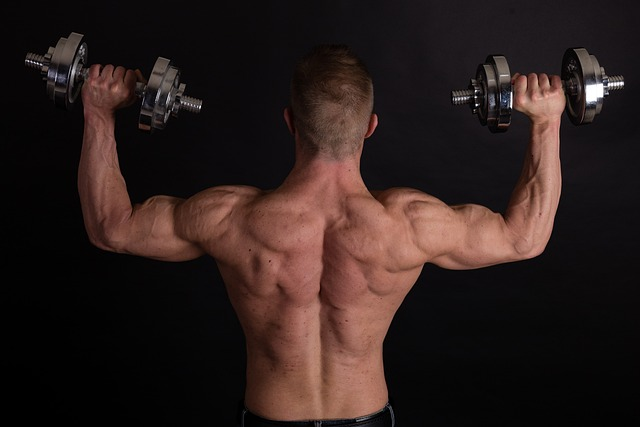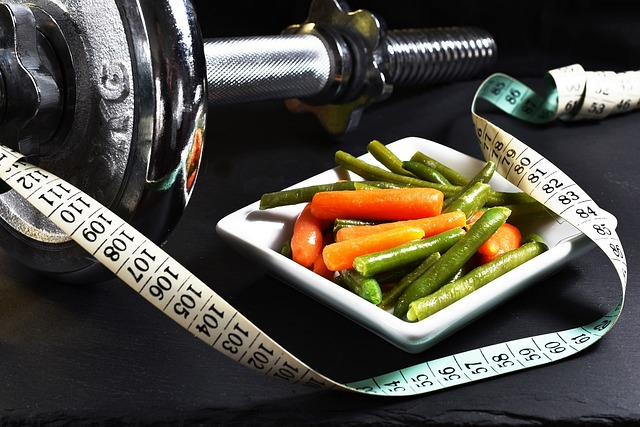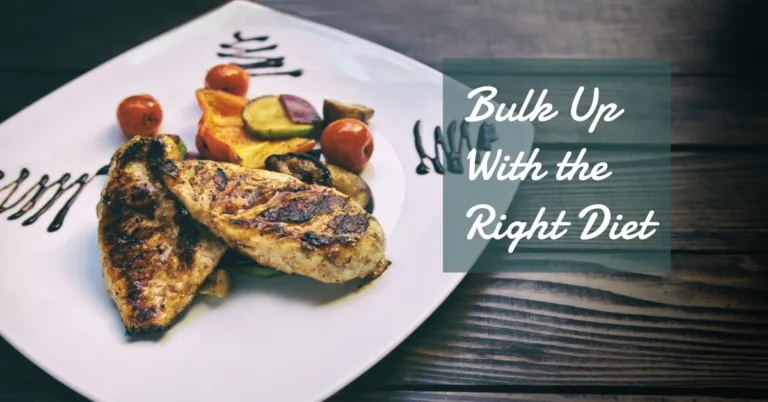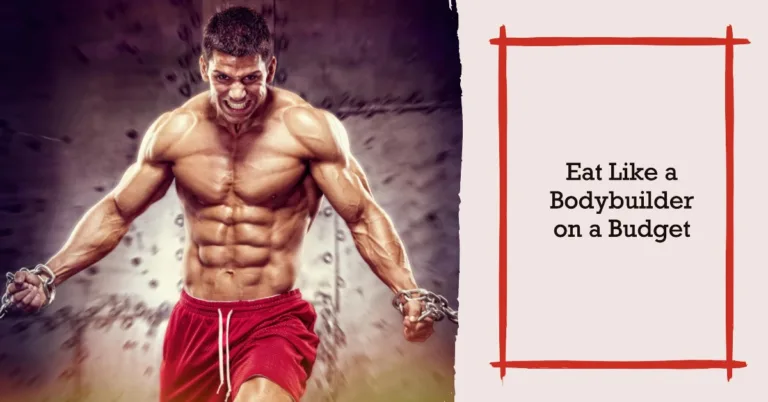Fit eating – pre workout and post workout meal for vitality
In order to lose weight, you must incorporate exercise into your everyday routine. But did you know that pre- and post-workout foods can also help you reach your fitness goals? It is critical to provide your body with the appropriate nutrients whether you want to reduce weight, grow muscle, or both.
Table of Contents
Understanding the fundamentals of healthy diet, muscle Growth and Loosing weight
A good diet is essential for losing weight and gaining muscle. Many people feel that exercise alone will get them there, but without adequate nutrition, their efforts would be meaningless.

When it comes to loosing and muscle gain, healthy eating plays a critical role. The foods you eat provide the nutrients and energy needed to fuel your workouts and build muscle. In order to reduce weight, you must create a calorie deficit by consuming fewer calories than your body burns. To gain muscle, you need to consume enough calories to support muscle growth while also engaging in strength training exercises. An eating fit benefits you achieve both of these goals.
Macronutrients are the three primary nutrients that your body requires in large amounts: protein, carbs, and fat. Each of these macronutrients serves a distinct function in the body.
Protein is required for muscle development and repair. You develop microtears in your muscle fibres when you do strength training exercises. Eating adequate protein aids in the repair of these tears and the formation of new muscle tissue.
Carbohydrates are the body’s principal energy source. They provide the energy you need to power through your workouts and encourage muscle growth. However, complex carbs such as grains, fruits, and vegetables should be preferred over processed carbohydrates such as sugar and white bread.
The Best Foods to lose weight and Muscle Gain

Eating a well-balanced and nutritious diet is critical for reaching weight-loss and muscle-gain objectives. The best pre workout meal for weight loss male can help you get the nutrients you need to fuel your workouts, develop lean muscle mass, and weight.
High-protein foods
Consuming healthful protein sources, such as chicken, fish, tofu, eggs, and lean beef or turkey, can help build muscle and promote weight reduction while fortifying and reviving tissue. These low-fat, high-protein foods are optimal selections for individuals aiming to slim down and develop muscle.
Carbohydrates
The body needs carbohydrates as a source of energy, particularly when exercising. They help with muscle recovery and supply energy needed to push through demanding exercise regimens.
It’s essential for reducing weight and muscle development to choose complex carbohydrates like fruits, and vegetables over simple carbohydrates like processed snacks and sugary drinks. Whole grains such as brown rice, quinoa, and oatmeal are excellent sources of complex carbohydrates, while fruit and vegetables provide essential vitamins, minerals and fiber.
Healthy fats
Contrary to what many people think, fats play a vital role in balanced diet. Healthy fats give the nutrients and energy a body needs to function at its optimal level. They also aid in the absorption of vitamins and minerals and also promote brain health. Avocado, nuts, olive oil and fatty fish like salmon and tuna are some of the finest sources of good fats. These foods can be a great addition to your diet if you want to lose weight and build strength.
Fiber
Crucial nutrient for digestive health and weight contol is fiber. It helps to regulate blood sugar levels and promote feelings of fullness, preventing overeating and weight gain. The recommended daily intake of fiber is around 25-30 grams per day, which can be achieved through consuming foods such as beans, whole grain cereals, and veggies.
These foods not only provide fiber but also essential vitamins and minerals that aid in overall health and wellbeing.
Healthy eating for reducing weight and muscle gain
When it comes to achieving muscle gain and weight reduction, structuring your diet properly can make all the differences. Here are some key factors to consider when planning your diet for optimal results:
Calculating daily caloric needs
Before you can start planning your diet, you need to determine your daily caloric needs. This can be done by calculating your basal metabolic rate (BMR), which is the number of calories your body burns at rest, and factoring in your activity level.
Online calculators can be used to estimate your daily caloric needs based on your age, height, weight, and activity level.
Macronutrient ratios
Finding the ideal macronutrient ratios that support your health and fitness is simpler once you have a clear grasp of how many calories your body needs each day. It is typically advised to increase protein intake while decreasing carbohydrate and fat intake for people trying to lose a few excess pounds while keeping muscle mass. In these situations, a ratio of 40% protein, 30% carbs, and 30% fat is a good spot to start because it helps to promote satiety while protecting muscle mass.
Pre-workout Meals for Vitality and Performance
Pre-workout and post-workout meals are important for muscle gain, weight loss, and overall fitness.
The best pre workout meals for weight loss are those that are low in calories and carbohydrates and high in protein. Pre-workout meal for weight loss should provide you with energy and nutrients to fuel your workout.
A pre workout meal for muscle gain should include complex carbohydrates, protein, and healthy fats. Good pre workout meals for muscle gain include complex carbohydrates, protein, and healthy fats. Examples of pre workout food for muscle gain include oatmeal with berries and nuts, a yogurt parfait with granola and fruit, or eggs with whole-wheat toast and avocado. These pre workout meal weight loss, are all good sources of complex carbohydrates, protein, and healthy fats. They are also relatively easy to digest, so you can eat them without feeling too full or bloated before your workout.
Post Workout Meal For Weight Management
A post workout meal for weight loss should be lower in calories and carbohydrates and higher in protein. A post dinner workout for weight loss can help you burn calories and lose weight, but it’s important to wait at least 2-3 hours after eating to avoid stomach upset.
Post-workout meals should help your body recover and repair muscle tissue. Good post workout meals for muscle gain include protein, complex carbohydrates, and healthy fats. Examples include grilled chicken with brown rice and roasted vegetables, a salmon salad sandwich on whole-wheat bread, or a lentil soup.
A post workout meal for weight gain should be high in calories, protein, and complex carbohydrates. This will help your body to repair muscle tissue and promote muscle growth.
Post-workout meals for weight loss should be lower in calories and carbohydrates. Good weight loss post workout meal options include a grilled chicken breast with steamed vegetables, a tuna salad sandwich on whole-wheat bread, or a bowl of lentil soup.
Sample Meal Plans and Snack Ideas: best diet for fitness
Here are some sample meal plans and snack ideas to help you structure your diet for weight loss and muscle gain:
Meal Plan 1 (for weight loss):
Breakfast: Scrambled eggs with spinach and whole-grain toast
Snack: Greek yogurt with berries
Lunch: Grilled chicken salad with mixed greens, avocado, and vinaigrette dressing
Snack: Apple slices with almond butter
Dinner: Baked salmon with roasted veggies and quinoa
Meal Plan 2 (for muscle gain):
Breakfast: Protein smoothie made with whey protein, banana, and almond milk
Snack: Hard-boiled eggs with sliced vegetables
Lunch: Turkey and cheese sandwich on whole-grain bread with carrot sticks
Snack: Lean proteins bar and fruit
Dinner: Grilled steak with sweet potato fries and mixed veggies
In addition to these sample meal plans, there are many healthy snack options that you can eat you fuel your workouts and support your weight loss and muscle gain goals. Some examples include:
Cottage cheese with fruit
Edamame trial
Trail mix with nuts and dried fruit
- Hummus protein shakes
Protein shakes or bars
Overall, structuring your diet properly is a key component of achieving weight loss and muscle gain goals. By calculating your daily caloric needs, determining macronutrient ratios, and planning healthy breakfast and snacks, you can set yourself up for success.
Other factors to consider for fit eating while building muscle and losing weight
The Role of regular exercise in building muscle and losing weight

Regular exercise is essential for gaining muslce strength and shedding weight. Because it causes muscle fibers to tear down and repair. Resistance training, such as weightlifting, is particularly efficient at building muscle over time. Running or cycling are examples of cardiovascular exercises that are efficient at promoting weight reduction and burning calories.
Combining the two forms of exercise can aid in striking an equilibrium between body weight and muscle gain.
The Importance of Getting Enough Sleep and Managing Stress

Getting enough sleep and managing stress are often overlooked factors in building muscle and losing weight. Lack of sleep can disrupt hormones that regulate hunger and metabolism, leading to overeating and weight gain.
Chronic stress can also lead to weight gain and muscle loss as it causes the body to release cortisol, a hormone that can break down muscle tissue and increase fat storage. Aim for 7-9 hours of sleep per night and try stress-reducing techniques such as meditation or yoga.
Stress sleep is a serious problem that can have a negative impact on your physical and mental health. If you are experiencing stress sleep, it is important to talk to your doctor. There are a number of things you can do to improve your sleep quality, such as reducing stress, establishing a regular sleep schedule, and creating a relaxing bedtime routine.
Stay Motivated and Consistent with Diet and Exercise
Staying motivated and consistent with diet and exercise can be challenging, but there are several tips that can help. Set realistic goals and track progress to stay motivated. Surround yourself with a supportive community or workout partner to stay accountable and motivated. Mix up workouts to prevent boredom and keep challenging the body.
A fitness meal plan is a great way to improve your vitality, reduce your risk of disease, and manage your weight. By providing you with the nutrients you need to fuel your workouts and support your overall health, a fitness meal plan can help you live a healthier and happier life. Make small, sustainable changes to your diet and exercise routine instead of drastic changes that may be difficult to maintain long-term. Remember that consistency is key to achieving sustainable results.







